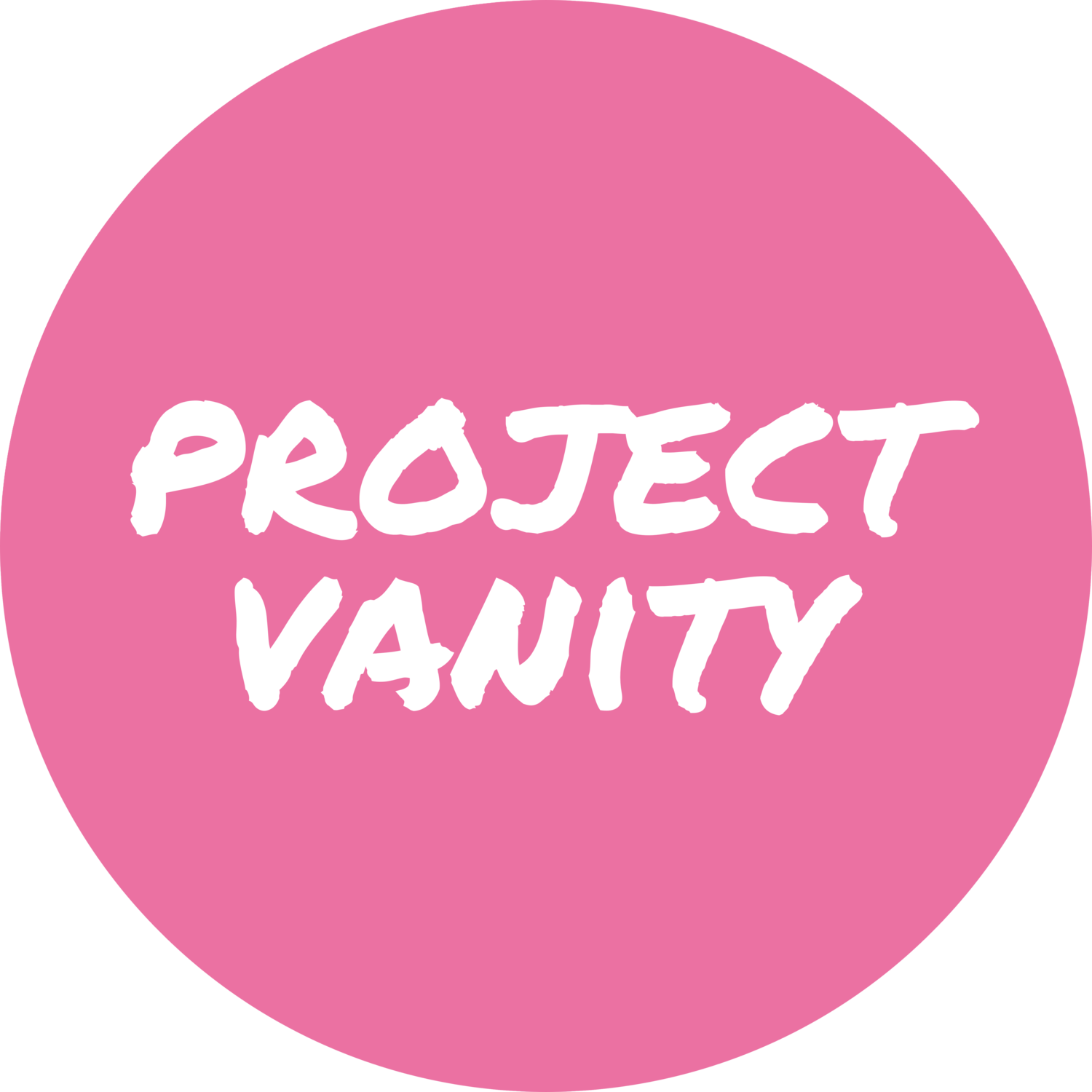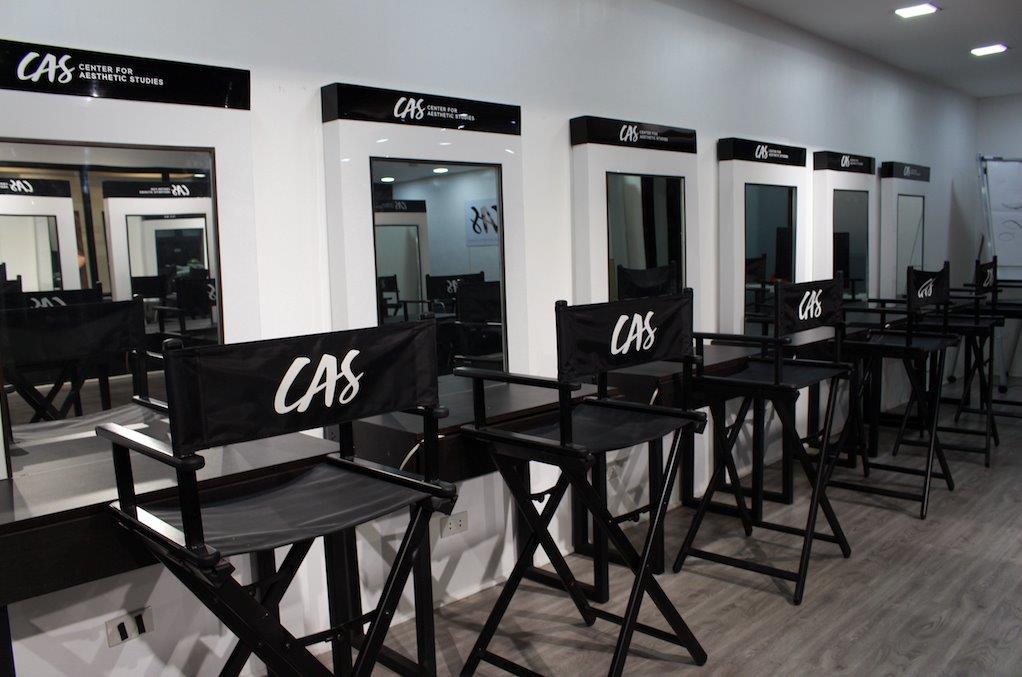Make-up Class: Alum Jigs Mayuga on his return as a CAS instructor
As one of the most popular and sought-after makeup artists today, Jigs Mayuga is undeniably a hero in the eyes of many budding makeup artists. And, like many heroes, he comes with quite a unique origin story. In a world full of “self-taught” beauty gurus and “natural talent,” Jigs stands out as an artist who openly sought out a more formal route, enrolling as a student of the Center for Aesthetic Studies’ (CAS) pioneer batch in 2004.
Thirteen years later, the student is now a teacher and more importantly a partner who will be directly involved in ensuring that the quality of education is of the highest standards. As part of CAS’s major revamp - which also includes refurbished headquarters, a new makeup partner, and a brand new curriculum - Jigs has signed on as an instructor, teaching alongside other known makeup talents such CAS pioneer and Faceone founder Jen Delica, and Miss Universe makeup artist RB Chanco.
As both a fan of Jigs’s work and someone who was intrigued by his journey, I was excited to find out more about what a makeup student might expect from him and from CAS. A few email exchanges later, consider me schooled in what makes up a makeup education!
A good foundation is important
While the majority of us makeup enthusiasts get our start from bingeing on blog posts and YouTube makeup tutorials, Jigs understood early on that a “higher calling” would require a different level of training. Asked when he knew it “was time” for him to start formal training, he explains that, “I sought training even before I began my career as an artist. That was the first thing I did.”
The internet provides easy to access information to budding artists but in Jigs’s book, the schoolroom has other advantages: “While YouTube is a great medium for learning how to apply makeup, theoretical and practical learning with a teacher is essential to honing your skills as an artist. Nothing can beat actual hands-on practice with a mentor and peers who can give honest feedback.”
It’s this rigorous discipline of monitored, hands-on practice, Jigs believes, that set CAS apart when he enrolled in 2004, and what continues to set them apart today: “CAS was the pioneer makeup school in the country back then and to me it had an image of prestige and professionalism, which we still uphold to this day… Being a makeup artist may seem glamorous, but being a successful one [in] our local industry entails hours of practice, setting up and packing up, being on your feet at all times, and dealing with clients and talents.”
In short, while self-studying online can show you techniques, it can’t impart to you the skill, grit, and professionalism needed to survive the cutthroat beauty industry. Formal training, in Jigs’s eyes, really does make a world of difference, and nowhere is this more clear than in Jigs’s own signature approach to makeup creativity.
Forget the rules but never the principles
“There are no rules in makeup,” Jigs agrees, but he also notes how the evolution of style and technology constantly “change the game”, making it important for any budding artist to know and master basic principles. Jigs reveals some of these principles in his own YouTube “classroom” where his rather minimalist approach to cosmetics stands in stark contrast to the heavily sculpted and constructed trends that comprise most makeup video tutorials.
When asked about this aesthetic, Jigs explains, “I think that is an aesthetic… I learned early on in makeup school. My first teacher, Miss Jen Delica of CAS - now my partner in the school - has always been a purveyor of this minimalist approach especially with the advent of HD media makeup. Proper blending and seamless application is essential in this day and age of high-definition film and 4k video technology.”
As many other professional makeup artists might tell you, it often takes more effort to make someone look “flawlessly natural” than it does to create a more obviously “made up” look, meaning a mastery of the “basic face” is often what sets a good and a great artist apart. “Makeup technology and trends play a part in [CAS] teaching methods but [for us] the basics of makeup artistry will always be important,” explains Jigs, “I really think the basics of makeup should be taught before delving into the professional side of the business.”
In fact, Jigs finds these foundations of makeup so important that he - along with the other instructors - makes sure to take time out to teach what is arguably CAS’s flagship course, a certificate program in Basic Makeup. This ten-day course covers“…skin care, personal makeup application and professional makeup application for different events like bridal, runway, and haute couture, glam, and avant-garde.”
Learning by doing
How might one pick up those essential makeup principles? For this, Jigs identifies two key ingredients: practice and mentoring. “I’m not a traditional teacher. I will teach the basics but I am also very hands on, because a lot of what I know now, I learned from years of working on the set, so seeing the students doing practical work and mentoring them is very important to me. I chose to return as a teacher because I’ve always enjoyed mentoring young artists and makeup education seemed like a natural progression for me in terms of career.”
As the PV girls witnessed first hand during his Digital Traincase workshop, Jigs is definitely not the sort of teacher who merely lectures. His CAS students definitely should come expecting an “on-the-job” experience, especially in Jigs’ field of expertise: Fashion and Photography Makeup. This forty-hour masterclass covers “…high fashion and creative makeup techniques for runway, red carpet events and photographic requirements.” Given Jigs’s body of work, it’s no surprise that he is one of the instructors!
If fashion photography isn’t your yen, however, Jigs still recommends giving the other masterclasses a try. Ranging from bridal makeup to body painting, CAS’s suite of courses cover any field an aspiring beauty professional might seek to specialize in, all with the same level of mentoring Jigs brings to his own classes. If that isn’t enough to convince you to sign on, there’s also the matter of what a student might learn beyond makeup.
What beauty teaches you
As someone who doesn’t see herself becoming a makeup artist, I had to wonder, what might I stand to gain from taking the time to study beauty formally? While celebrities and luminaries are known to take makeup courses for special occasions - Kate Middleton, for example, famously took lessons in order to do her own wedding day face - would it actually benefit an ordinary person like me to take a class, simply to learn to do her own makeup?
In Jigs’s words, well, yes: “I think it’s great that more and more women are studying makeup for their own use. It takes the artistry to a more personal level and it helps by elevating the art of makeup into a more intimate experience.” For someone like me, who isn’t quite ready to commit to a full course, there were always the Personal Makeup Workshops (a single four-hour session), or the One-on-One Courses in Personal Makeup (three three-hour sessions) for the more committed amateur.
More than just picking up an art or skill, Jigs explains that what one stands to learn from the study of beauty is acceptance. “Beauty is relative. This is true. I choose to see the beauty in many unusual things because honestly, at the end of the day, makeup is just a temporary fix. It’s a great confidence boost but it’s not permanent. Learn to embrace your flaws and work with what you have.”
Are you ready, then, to learn to work? If your interest is piqued, consider signing up for one of CAS’s professional or personal courses. Who knows? You might get to study with Jigs himself!
For more information on courses, visit http://cas.com.ph/classes/





![19149263_10154672186562129_2022496605790100550_n[1].jpg](https://images.squarespace-cdn.com/content/v1/51d151b1e4b05d425c859fc9/1503278559148-JHGD5QUX75ESDURXUFAJ/19149263_10154672186562129_2022496605790100550_n%5B1%5D.jpg)
